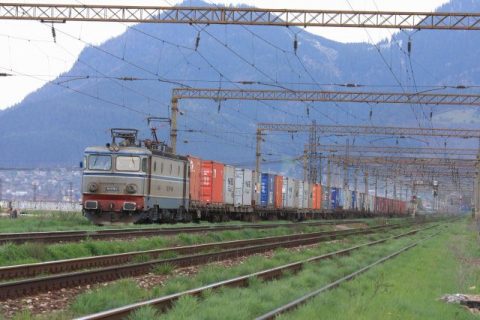
Romania state aid for rail freight operator probed by EU
The European Commission has opened an in-depth investigation into Romanian state support for rail freight operator CFR Marfa. The EC says debt write-offs may have given the company an unfair advantage.
As the body which oversees competition policy across the European Union, the commission said that rail freight was an essential component of any economy’s transport links.
Unlike passenger rail transport, the freight rail transport market in Romania is highly competitive, with numerous private operators, some having gained considerable market share following liberalisation of the market in 2007. In March 2017, the Association of Romanian Private Rail Freight Operators filed a formal complaint with the Commission alleging that CFR Marfa had received State aid in breach of EU rules.
‘Benefited’
In a statement, Margrethe Vestager, EU Competition Commissioner, said: “CFR Marfa is the incumbent in this market in Romania and has benefited from the cancellation of public debts and the failure of public creditors to collect debts owed to it.” The commission, she added, needed to check whether a private investor would have acted in the same way as the public authorities.
The commission said it would be examining a number of support measures in favour of CFR Marfa, including a debt-to-equity swap amounting to 1.669 billion Romanian Leu (approximately 360 million Euros), and the failure to collect social security debts and outstanding taxes since at least 2010.
Advantage
A state intervention in a company can be considered free of State aid within the meaning of EU rules when it’s carried out at conditions that a private investor would have accepted. The Commission will now assess whether this was the case for CFR Marfa’s public creditors or whether, on the contrary, the state intervention has given CFR Marfa a selective economic advantage over its competitors and constitutes State aid. If the Commission were to conclude that CFR Marfa has received State aid, it would then assess whether this could be compatible with EU rules that authorise certain categories of aid.
Restructuring
CFR Marfa has been in financial difficulties since at least 2009. EU State aid rules only allow a state intervention for a company in financial difficulty under specific conditions, requiring in particular that the company is subject to a sound restructuring plan ensuring its return to long-term viability and that the company contributes to the cost of restructuring.
The commission will now investigate further to find out whether its initial concerns are confirmed or not. The opening of an investigation gives interested third parties the opportunity to submit comments, and does not prejudge the outcome of the investigation.





